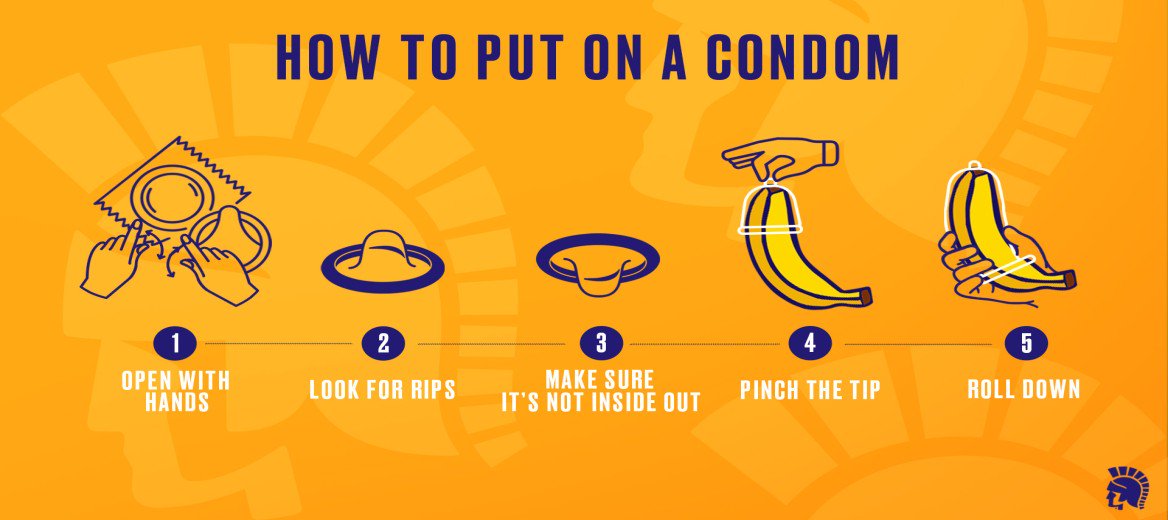Health + Wellness
Safer Sex Using Condoms to Prevent STIs

We don’t talk about safer sex as much as we used to, but we should because the rates of sexually transmitted infections (STIs) are going up year after year. The Centers for Disease Control and Prevention (CDC) estimates that there are 26 million new STI infections each year and about half of them occur in young people 15 to 25.
The good news is that latex condoms have been proven to protect against the most common STIs including chlamydia, gonorrhea, herpes, syphilis, HPV, and HIV.
The exact numbers vary for different infections and they can be hard to measure since not everyone gets treated. But researchers have confirmed that condoms provide protection against all of these STDs through:
laboratory tests that show viruses and other germs cannot penetrate condoms
real world studies that compare STI rates in condom users to those in non-users to confirm that condoms provide protection against all of these infections
following couples with one HIV-positive person and one who is not to learn even more.
How Do Condoms Protect Against STDs?
Condoms are most effective against STIs that spread through bodily fluids like blood, semen, and vaginal/cervical secretions because the condom is in the right position to block the exchange of fluids between partners.
Other STIs are spread through skin-to-skin contact. Condoms reduce the risk of these STIs as well, however, condoms can only provide protection when the sores or warts are in an area covered by the condom. Sores from STIs can occur in other places on the body, such as on the scrotum or vaginal lips.
Here’s some more information on condoms and specific STIs:
Do condoms provide protection against chlamydia and gonorrhea?
Yes. Chlamydia (aka “the clam”) and gonorrhea (aka “the clap”) are common bacterial infections that are spread through semen and vaginal/cervical secretions. Condoms are highly effective in preventing these infections as they provide a barrier that prevents the exchange of bodily fluids.
Do condoms provide protection from HIV?
Yes. There is very good data that shows condoms reduce the risk of HIV, the virus that causes AIDS. One study found that using a condom for HIV protection was 10,000 times safer than not using one. Today, there are also other ways to prevent HIV. Anyone at increased risk of HIV, should talk to their health care provider about pre-exposure prophylaxis (PrEP), medication that can prevent HIV transmission.
Do condoms protect against herpes?
Yes. Herpes is a virus that causes sores on the mouth, genitals, or anus. There are two types of herpes: HSV-1, which typically causes cold sores, and HSV-2, which usually causes sores around the genitals. Condoms reduce the risk of transmitting both types of herpes, but only when the sores are in areas covered by the condom.
Yes, you can get herpes by receiving oral sex from someone who has oral herpes, or cold sores. Preventing oral-to-genital herpes is a good reason to wear a condom for oral sex with a new partner. Again, the condom will only protect the areas covered by the condom.
Do condoms provide protection from syphilis?
Yes. Syphilis is a bacterial infection that causes sores or blisters (called chancres) usually around the mouth, genitals, or anus. Condoms reduce the risk of transmitting syphilis. However, condoms only can protect against syphilis transmission if the sores are in areas covered by the condom.
Do condoms prevent HPV?
Yes. HPV or human papillomavirus can cause genital warts or cancers of the penis, vulva, anus, or throat. It is transmitted through skin-to-skin contact. Research has shown that condom use significantly reduces HPV risk as well as the risk of future health issues like genital warts, cervical dysplasia, and cervical cancer.
There is also a vaccine that prevents the 9 types of HPV that are most likely to cause cancer or genital warts. The CDC recommends that this be given as part of routine vaccinations at age 11 or 12 but is has been approved for people up to age 45. Check with your health care provider to see if your vaccination is up-to-date or if they recommend this shot for you. Learn more about HPV, its symptoms, and how to treat it.
How Effective are Condoms at Preventing STIs?
Condoms are the original safer sex method because they reduce the risk of STI transmission. And condoms are also an effective method of birth control. To get the maximum benefit from condoms, make sure to use them from start to finish every time you have sex and that you choose a condom that fits well, covering the shaft from tip to base.



